Key takeaways
- Community life coaching emphasizes collective growth, transforming interactions into supportive experiences that merge individual goals with community well-being.
- Mentorship in coaching fosters personal connections that inspire deep reflection and breakthroughs, highlighting the importance of vulnerability and empathy in leadership.
- Roberta Matuson exemplifies effective mentorship by blending practical strategies with genuine understanding, encouraging leaders to embrace authenticity and emotional awareness.
- Applying mentorship principles, such as active listening and encouraging reflection, deepens trust and supports genuine growth in both mentors and mentees.

What Is Community Life Coaching
Community life coaching, as I see it, is all about fostering growth within a group, not just pushing individual success. What truly stands out to me is how this approach transforms ordinary interactions into powerful, supportive experiences where everyone learns and evolves together.
I remember a moment when a small community gathering shifted from casual talk to a deep sharing session, all guided by a coach’s gentle questions. It was astonishing how this simple act of collective reflection sparked excitement and new ideas among people who barely knew each other before.
Have you ever wondered what happens when personal goals align with community well-being? In my experience, community life coaching creates that unique space where individual dreams and collective purpose merge, making growth feel inclusive and genuinely meaningful.

Benefits of Community Life Coaching
One of the biggest benefits I’ve seen in community life coaching is how it breaks down isolation. When people come together with a shared purpose, it’s like an invisible thread starts connecting everyone—suddenly, challenges don’t feel so heavy because you know others have your back.
Have you ever noticed how motivation skyrockets when you’re accountable to a group? From my experience, the encouragement and gentle nudges from fellow community members make it easier to stay on track. It’s not just about hitting goals; it’s about feeling truly supported every step of the way.
Another thing that strikes me is how community life coaching fosters empathy. Watching people listen deeply to each other’s stories has reminded me just how powerful shared understanding can be. It creates a space where judgment fades and real growth happens—both individually and as a collective.
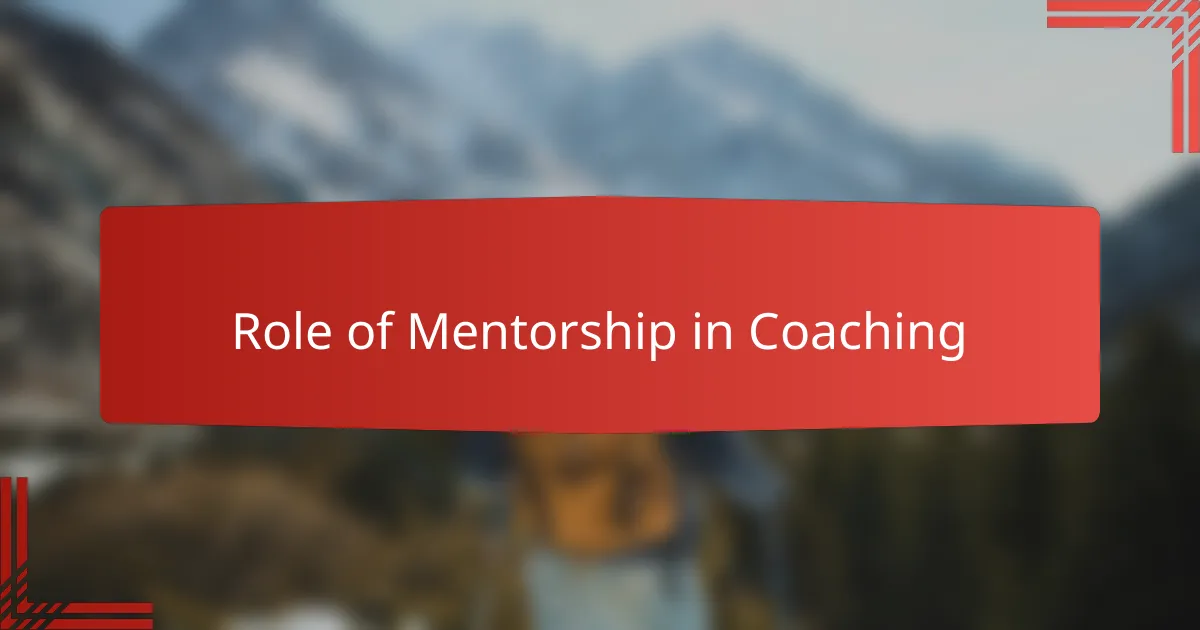
Role of Mentorship in Coaching
Mentorship in coaching acts like a trusted compass, guiding individuals through the twists and turns of personal growth. I’ve seen how a mentor’s insights can break through self-doubt, offering clarity when the path feels foggy or overwhelming. Have you ever experienced that moment when someone’s belief in you suddenly makes your own goals seem achievable?
What strikes me most about mentorship is its deeply personalized nature. It’s not just about sharing advice but creating a relationship where honest reflection and encouragement flow freely. From my perspective, this personalized connection often fuels breakthroughs that general coaching might miss.
I remember working with a mentor who asked questions that challenged my assumptions and sparked new thinking. That kind of probing support transformed my approach, reminding me that mentorship in coaching is less about answers and more about inspiring discovery—something I believe is essential for lasting change.
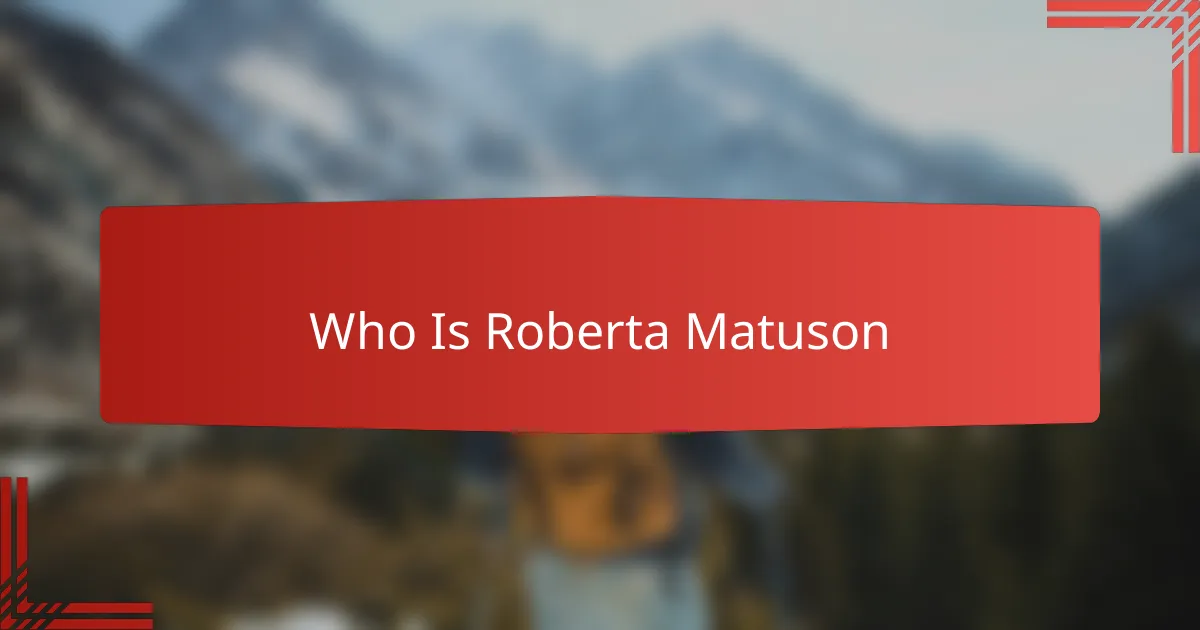
Who Is Roberta Matuson
Roberta Matuson is a leadership expert and author whose work I’ve found truly inspiring. She specializes in helping organizations and individuals unlock their potential through genuine connection and thoughtful leadership. Have you ever met someone whose presence instantly encourages you to reflect deeper? That’s the feeling I get from her approach.
What I appreciate most about Roberta is her ability to blend practical strategies with a heartfelt understanding of human behavior. From my experience, her insights don’t feel like rigid rules but rather invitations to explore new ways of leading and growing. I recall reading one of her books and feeling like she was having a personal conversation with me about the challenges of leadership.
She’s also known for her engaging workshops and coaching sessions where authenticity takes center stage. In my view, Roberta models the kind of mentor I believe every community life coach should aspire to be—someone who listens deeply, challenges gently, and inspires confidently. Have you noticed how those qualities make a huge difference in real growth? That’s exactly what she brings to the table.
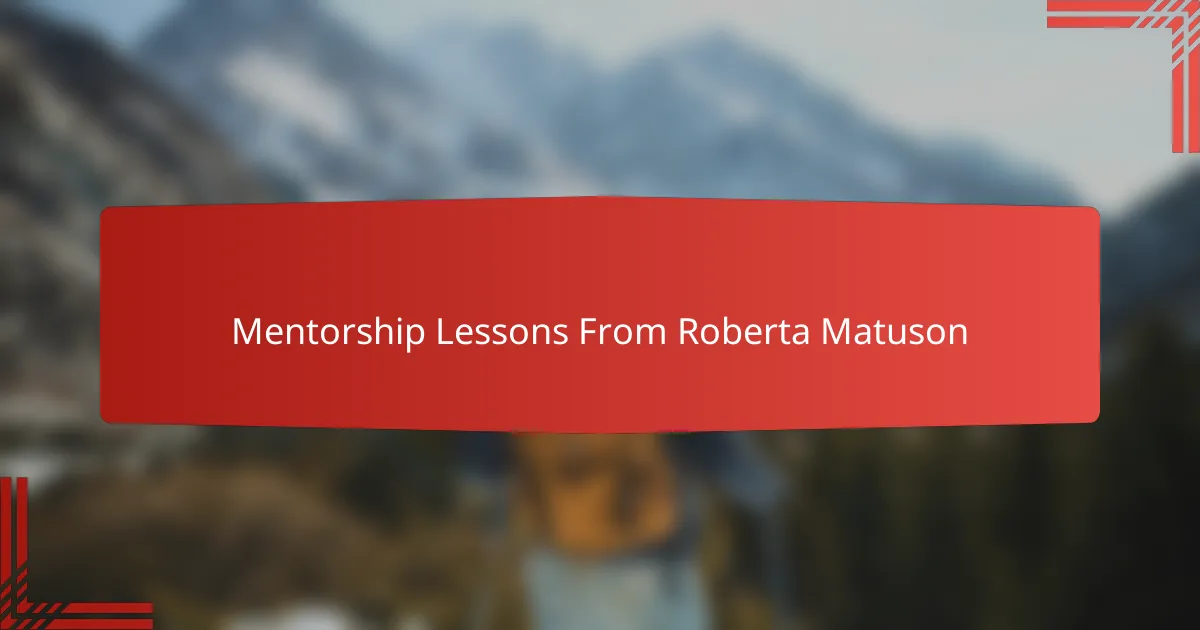
Mentorship Lessons From Roberta Matuson
Roberta Matuson’s mentorship taught me that true leadership starts with vulnerability and genuine connection. I recall a moment in one of her sessions when she encouraged me to share not just my successes, but my fears, and it shifted the entire energy—making growth feel less intimidating and more authentic. Have you ever felt that sharing your struggles actually strengthens your leadership rather than weakens it?
One lesson that really stuck with me is how mentorship isn’t about having all the answers but about asking the right questions. Roberta’s approach often involved probing gently, inspiring me to uncover insights on my own rather than handing me quick fixes. From my experience, this sparked a deeper, more lasting change than any straightforward advice could.
What stands out most is her emphasis on leading with empathy and heart. I’ve noticed how her mentorship encourages not just strategic thinking but also tuning into the emotional pulse of a team or community. Isn’t it refreshing to find a mentor who values feelings as much as outcomes? That balance truly changed how I approach my own coaching practice.
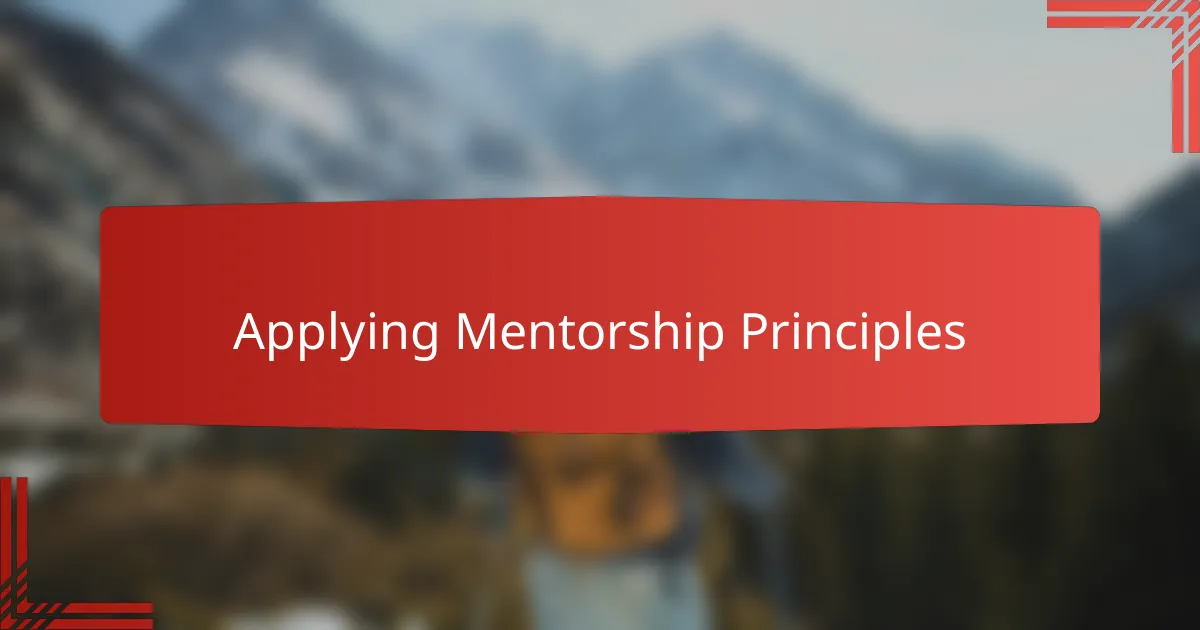
Applying Mentorship Principles
Applying mentorship principles means embracing a mindset of active listening and thoughtful questioning. I’ve found that when mentors really tune in, they create a space where mentees feel safe to explore ideas and doubts without fear of judgment. Have you ever noticed how simply being heard can ignite a fresh wave of motivation and clarity?
One practical way I apply these principles is by encouraging reflection rather than rushing to provide answers. This approach has often surprised me—when I step back and let someone wrestle with a challenge, their own insights emerge stronger than any advice I could give. It’s a subtle shift but one that deepens trust and fosters genuine growth.
I also believe that applying mentorship principles requires patience and empathy. I recall a time when a mentee was struggling to find direction, and instead of pushing hard, I focused on understanding their feelings and fears. That patience paid off as they gradually opened up and discovered their own path—a reminder that mentorship is as much about human connection as it is about guidance.
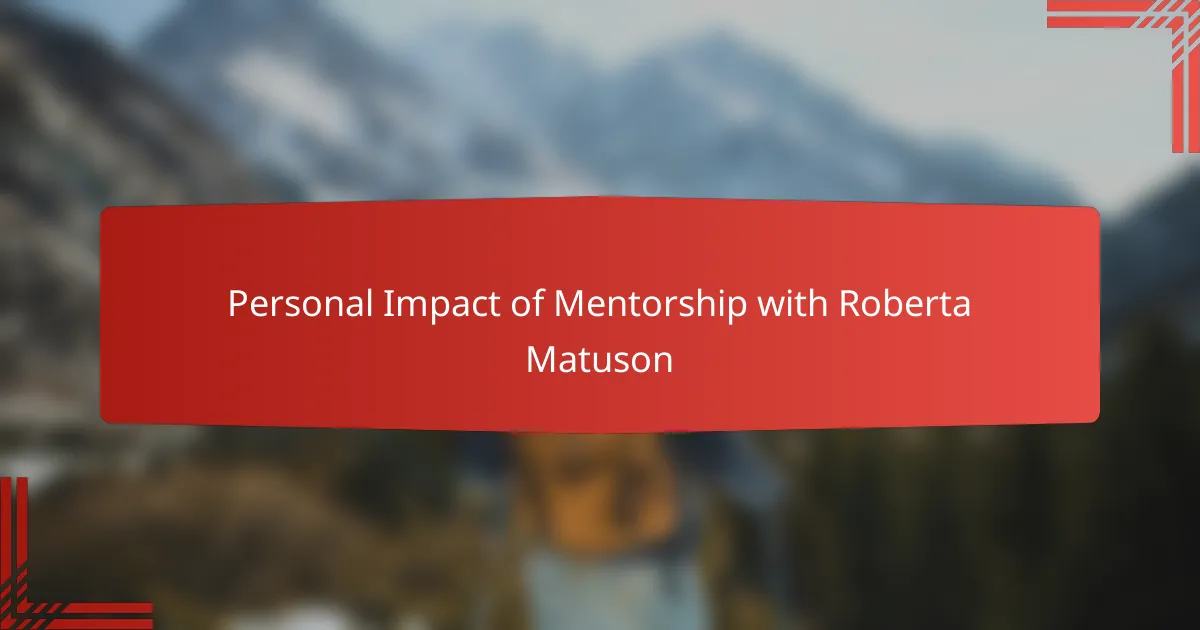
Personal Impact of Mentorship with Roberta Matuson
Working with Roberta Matuson profoundly changed how I view mentorship—it became less about instruction and more about connection. I remember feeling hesitant at first, unsure if I could be vulnerable, but her genuine empathy made me comfortable enough to share fears I hadn’t voiced before. Have you ever experienced that quiet moment when someone truly listens and it shifts everything inside you? That’s exactly what happened.
What struck me most was how her mentorship challenged me to own my growth with both heart and courage. Instead of handing me easy solutions, Roberta asked questions that nudged me to reflect deeply, often uncovering insights I didn’t know I had. From my perspective, this approach made the progress feel authentic and sustainable rather than forced or superficial.
Another personal takeaway was the reminder that leadership—and by extension mentorship—is rooted in empathy and humanity. I noticed how Roberta’s coaching wasn’t just about hitting milestones but about honoring emotions, even the uncomfortable ones. Isn’t it powerful when someone encourages you to lead with feeling, not just strategy? Her impact on me was exactly that kind of shift, one I now aim to share in my own community work.